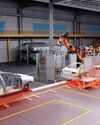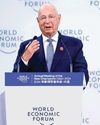
Mary Ann Jones, 83, didn't realize this until she received a call last year from GoodLeap, a financial-technology company, saying she owed $52,564.28 for a solar-panel loan that expires when she's 106, and costs more than she originally paid for her house.
In 2022, she says, a door-to-door salesman from the company Solgen Construction showed up at her house on the outskirts of Fresno, Calif., pushing what he claimed was a government program affiliated with her utility to get her free solar panels. At one point, he had her touch his tablet device, she says, but he never said she was signing a contract with Solgen or a loan document with GoodLeap. She's on a fixed income of $960 a month and cannot afford the loan she says she was tricked into signing up for; she's now fighting both Solgen and GoodLeap in court.
Her case is not uncommon. Solar customers across the country say that salespeople obscure the specific terms of the financial agreements and cloud the value of the products they peddle. Related court cases are starting to pile up. "I have been practicing consumer law for over a decade, and I've never seen anything like what we are seeing in the solar industry right now," says Kristin Kemnitzer, who represents Jones and says her firm gets "multiple" calls every week from potential clients with similar stories.
Angry customers aren't the only reason the solar industry is in trouble. Some of the nation's biggest public solar companies are struggling to stay afloat as questions arise over the viability of the financial products they sold-both to their consumers and to investors.
This story is from the {{IssueName}} edition of {{MagazineName}}.
Start your 7-day Magzter GOLD free trial to access thousands of curated premium stories, and 9,000+ magazines and newspapers.
Already a subscriber ? Sign In
This story is from the {{IssueName}} edition of {{MagazineName}}.
Start your 7-day Magzter GOLD free trial to access thousands of curated premium stories, and 9,000+ magazines and newspapers.
Already a subscriber? Sign In

Q & A: Borge Brende
The World Economic Forum president talks with TIME editor Sam Jacobs

Q & A - Rene Haas
Arm's CEO on how his hardware is supporting the Fourth Industrial Revolution

The conflicts looming over 2025
WHEN DONALD TRUMP TOOK THE OATH OF OFFICE AS President in January 2017, his first foreign policy priority was to get tough on China. The Trump 2.0 Administration will continue that work. But when he strides back into the Oval Office in January 2025, Trump will also become responsible for U.S. management of two dangerous wars, the kinds of hot foreign policy crises he was fortunate to avoid during his first term.

Rev Lebaredian
Nvidia's vice president of Omniverse and simulation technology on training AI-powered robots

5 predictions for AI in 2025
New uses and policy questions come into focus

Roy Wood Jr. The comedian on his new stand-up special, the importance of working in food service, and learning from Keanu Reeves
8 QUESTIONS WITH Roy Wood Jr.

A call for global cooperation in the Intelligent Age
Cultivate wisdom along with innovation

The D.C. Brief
IN THE END, THE THREAT OF A FARright revolt proved more menacing than most imagined, as Republican Mike Johnson initially came up short on Jan. 3 during the first balloting to keep him as Speaker.

The digital labor revolution
OVER THE PAST TWO YEARS, WE'VE WITNESSED advances in AI that have captured our imaginations with unprecedented capabilities in language and ingenuity. And yet, as impressive as these developments have been, they're only the opening act. We are now entering a new era of autonomous AI agents that take action on their own and augment the work of humans. This isn't just an evolution of technology. It's a revolution that will fundamentally redefine how humans work, live, and connect with one another from this point forward.

Tech we can trust
Serving humanity's best interests must be at the center of progress